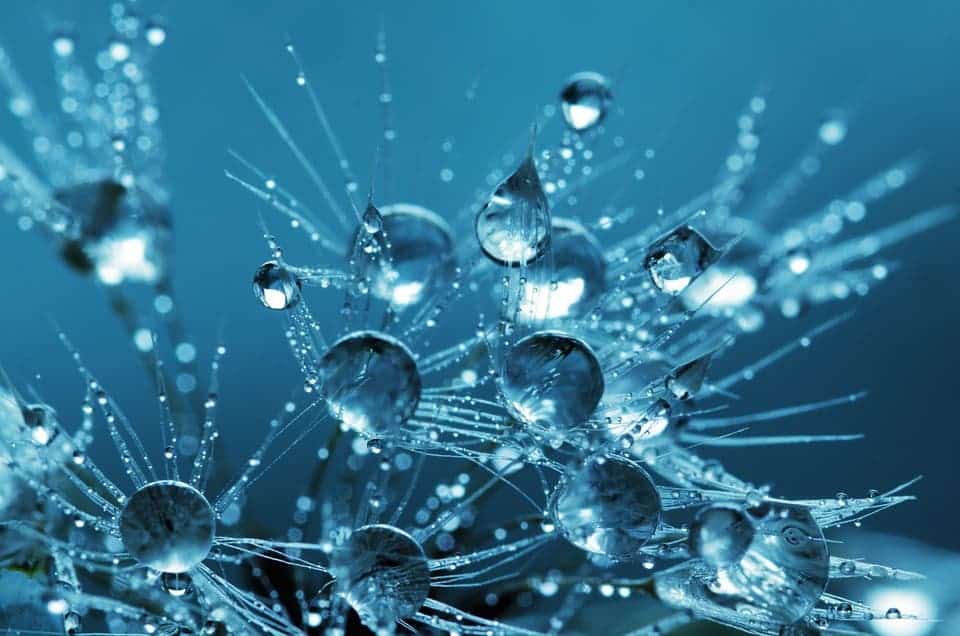Water just got weirder. This unique liquid, incredibly simple and yet incredibly complex at the same time, has managed to surprise us once again. Two teams working independently managed to cool liquid water to -42.55 degrees Celsius (-44.59 degrees Fahrenheit). They believe that this point is a mathematical singularity.

Everyone knows what water is, and yet few people, if any, can claim to truly understand this substance. It’s the most ubiquitous and important liquid on Earth, and yet it’s also one of the most puzzling ones. Since childhood, we’re taught that water freezes at 0 degrees Celsius, or 32 degrees Fahrenheit (273.15 Kelvin, if we really want to get pedantic). Then, as we grow up, we learn that the freezing point of water also varies with pressure. We also know that in special conditions (for instance when cooled very quickly) water’s freezing point can be even lower. But what no one knew until recently is that water’s freezing point can go below -40 degrees. In other words, it is possible to get water droplets down to -42.55 °C (-44.59 °F) without it freezing.
In order to demonstrate this, researchers from Goethe University Frankfurt pioneered a new technique. They injected very tiny droplets into a vacuum chamber — a chamber without anything inside, not even air. As the droplets move through the chamber, some of them evaporate, and this process lowered the temperature of the remaining droplets. But measuring the temperature wasn’t easy.
When you’re dealing with such scales, you can’t really plug a thermometer inside to determine the temperature. Instead, they used lasers to measure the change in diameter of the drops and then deduced the temperature from this. With this technique, they were also able to show that, while some of the water did form ice crystals, some of it remained liquid, even at these ungodly cold temperatures.
In a separate paper, Anders Nilsson at Stockholm University and colleagues also cooled micro-droplets inside a vacuum. But they focused on something else, something even weirder. Using a high-speed X-ray, they proved that water can exist as two distinct liquids with different ways to bind the water molecules. In other words, water can’t take one or the other form without fluctuating between the two for a while.
Different parts of the droplets had different densities, indicating a strange behavior that in mathematics is referred to as a singularity
“What was special was that we were able to X-ray unimaginably fast before the ice froze and could observe how it fluctuated between the two states”, says Nilsson, a professor of Chemical Physics at Stockholm University and a corresponding author of the Science paper, said in a university press release. “For decades there has been speculations and different theories to explain these remarkable properties and why they got stronger when water becomes colder. Now we have found such a maximum, which means that there should also be a critical point at higher pressures.”
Paola Gallo of the University of Roma Tre in Italy, who wrote a Perspective piece in the same Science issue, is impressed with the result.
“This group succeeded in going beyond the limit of supercooling obtained before,” she says. “That means that in future we can go even further. There are fields in which it’s important to avoid crystallization: one of these, for example, is cryopreservation. In these cases, for example, solution can be of help, so knowing what is the exact density of water and what is the exact structure water assumes in the supercooled phase is very important.”
Meanwhile, Alan Soper of the UK’s Rutherford Appleton Laboratory is intrigued, but he’s also a bit more cautious. He says that we still don’t know exactly what we’re seeing, and neither team offers a clear explanation of the cause of this phenomenon.
“They’ve clearly seen something and it’s very interesting,” he concludes. “But what’s actually causing it is probably something we don’t have a straightforward answer to.”
There are also significant practical implications of this study. It’s not just about understanding water, the deceivingly complex liquid that has puzzled researchers for centuries. Super-cooled liquid water might naturally form in Earth’s atmosphere, and this could have a significant impact on meteorological phenomena. Better understanding this process might allow researchers to improve both climate models and weather forecast.
Journal Reference:
- Claudia Goy et al. Shrinking of Rapidly Evaporating Water Microdroplets Reveals their Extreme Supercooling. DOI: 10.1103/PhysRevLett.120.015501 , Arxiv: https://arxiv.org/abs/1711.02412
- Kyung Hwan Kim et al. Maxima in the thermodynamic response and correlation functions of deeply supercooled water. DOI: 10.1126/science.aap8269






